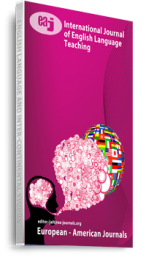Learners are required to demonstrate increasing autonomy and initiative in learning strategies, such as evaluating learning resources and comprehending information, within the educational system. Effective knowledge development both within and outside of school is achievable only if pupils possess the abilities to start, direct, and manage the search for information, as well as its subsequent processing and storage. In learning and teaching research, these approaches are referred to as learning strategies, which students must use in order to facilitate the implementation of their search for knowledge. This research is predicated on the concept that teaching does not necessarily result in learning (VanPatten & Williams, 2007) and that many students may need instruction from their instructors in order to use certain learning techniques. The purpose of this article is to examine the learning techniques that Ghanaian College of Education (CoE) students bring to the English Language classroom and their influence on their English learning. This case study included forty-eight (48) CoE students and employed a mixed method approach using a questionnaire as the instrument. Through descriptive statistics, data were analyzed subjectively and quantitatively. The research showed that the most often utilized methods by CoE students were metacognitive and compensatory strategies. Students made little use of memory and cognitive techniques. The research proposes a change away from conventional lecture-based instruction and toward collaborative learning in the CoE classroom, since the latter is proven to be more beneficial to students’ English language studies.
Keywords: Language Learning Strategies (LLS); collaborative; metacognition; memory strategies; compensation

